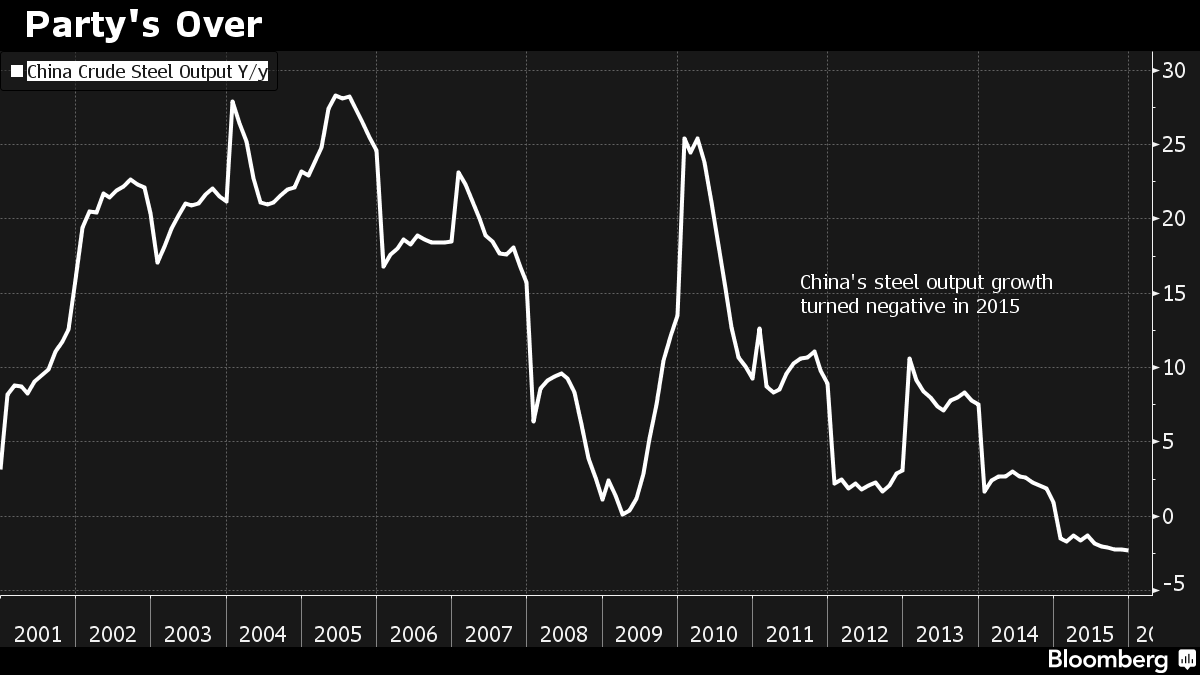World's Biggest Steel Industry Shrinks for First Time Since 1991

Steel output in the world’s largest producer posted the first annual contraction in a quarter century.
Mills in China, which make half of global supply, churned out less last year for the first time since at least 1991 as local demand dropped, prices sank and producers struggled with overcapacity. Crude steel production shrank 2.3 percent to 803.83 million metric tons, the statistics bureau said Tuesday. December output fell 5.2 percent to 64.37 million tons from a year earlier.
Demand is weakening as policy makers seek to steer the economy away from investment toward consumption-led growth. The economy expanded 6.9 percent last year, the slowest full-year pace since 1990, data showed. Steel output will probably drop 2.6 percent this year, weakening the outlook for iron ore as global miners increase shipments, Citigroup Inc. has estimated.
“This marks the start of declining steel output in China as the economy slows,” Xu Huimin, an analyst at Huatai Great Wall Futures Co. in Shanghai, said by phone. “We’re likely to see more output cuts this year, though the magnitude of declines will be quite similar to 2015. Supply cuts in a glut are a long-drawn process as mills seek to maintain market share.”
Crude-steel output in China surged more than 12-fold between 1990 and 2014, and the increase is emblematic of the country’s emergence as the world’s second-largest economy. Demand soared as policy makers built out infrastructure, shifted millions of people into cities and promoted consumption of autos and appliances.
Weakest Quarter
China’s economy slowed in December, capping the weakest quarter of growth since the 2009 global recession, as the Communist leadership struggles to manage a transition to consumer-led expansion. Industrial production, retail sales and fixed-asset investment all slowed at the end of the year, while gross domestic product climbed 6.8 percent in the fourth quarter from a year earlier.
Chinese steel demand is also dropping for the first time in a generation, prompting mills to export record amounts of the metal. Shipments jumped 20 percent last year to 112.4 million tons, an all-time high. Excess supply particularly from China has spurred governments across the globe to take steps to protect their home markets.
More production cuts are needed as local consumption weakens further and steelmakers face stiffer opposition to exports, according to Li Xinchuang, deputy secretary-general of the China Iron & Steel Association. Output may drop to about 783 million tons this year, the association has said.